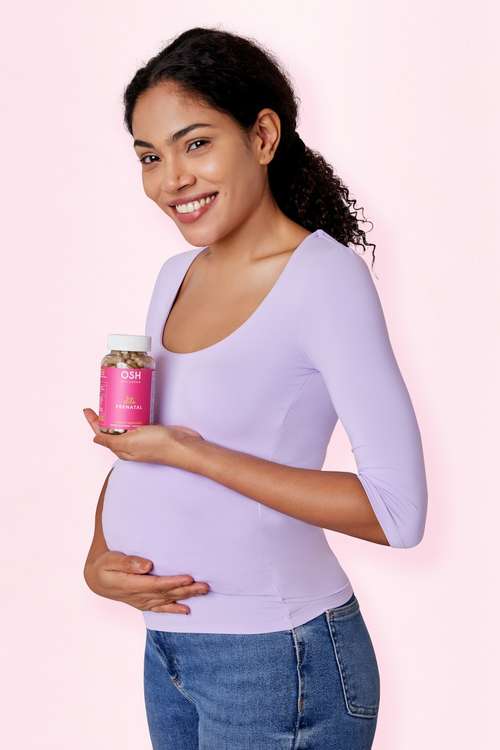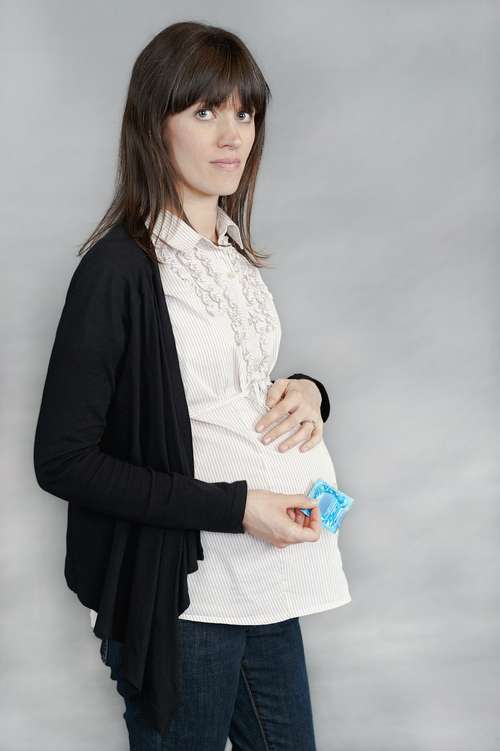Pregnancy is a journey of highs and lows. The highs from anticipating this joy growing in your belly and the lows from every other hormonal change that comes with it. For example, skin treatments containing strong acids like glycolic acid and salicylic acid might cause irritation or redness even if it wasn't previously an issue. This extends to other cosmetics containing fragrances or preservatives as they might cause rashes or itching.
Hormonal fluctuations can increase melanin production and in a few cases present as conditions like melasma. Melasma often referred to as the "mask of pregnancy” appears as dark, patchy spots on the face, particularly on the forehead, cheeks, and upper lip, and in some cases, including nipples, inner thighs, or underarms.
Drying skin and increased sebum production during pregnancy can lead to flakiness, itching, acne, and discomfort. Pregnant women might find that their usual moisturizers are no longer sufficient to produce maximum hydration, and they need to switch to richer, more hydrating creams or oils. Stretch marks are also more common as the body expands to accommodate the growing baby.
Skincare Tips for Expecting Mothers
The health of both babies and mothers are important which is why expecting mothers should inspect what they apply on their skin, alongside what they eat.
Knowing which ingredients are safe and for use and which are not is useful when updating your pregnancy skincare routine.
Ingredients that are generally safe for both parties include:
- Hyaluronic Acid: This super hydrating ingredient works only topically on the skin's surface and doesn't penetrate too deep making it suitable even for sensitive skin.
- Vitamin C: This nature's gift is a powerful antioxidant that brightens the skin and increases collagen production with frequent use. Overtime, it helps dull-looking skin look more radiant.
- Niacinamide: This potent ingredient helps with irritation, redness, and a compromised skin barrier. It also reduces hyperpigmentation by inhibiting melanin transfer, for an even skin tone.
- Ceramides: Essential for preventing moisture loss, keeping the skin supple, preventing dryness and sensitivity ultimately restoring the skin’s glow.
The ingredients to avoid include some of the following:
- Retinoids: Found in many anti-aging products, retinoids, including retinol, tretinoin, and retinoic acid, stimulate cell turnover and collagen production. Although these are beneficial, they can cause teratogenic effects like abnormalities in bone structure, mental health conditions and heart defects. There are much safer alternatives like vitamin c and bakuchiol that give similar benefits for beautiful skin.
- Salicylic Acid: In concentrations higher than 2%, salicylic acid can be absorbed. In concentrations higher than 2%, salicylic acid can be absorbed. Instead consider non-BHA alternatives with better safety profiles like azelaic acid.
- Hydroquinone: Well-known for its high potency, this bad boy is used to combat hyperpigmentation. However, it should be avoided in pregnant individuals due to its high rate and depth of penetration. There are safer alternatives like vitamin C, or licorice extract that help reduce pigmentation.
- Phthalates and Parabens: These are common in many cosmetic and food products, but can throw off hormonal balance in expecting mothers and cause reproductive harm and neurological problems in the fetus.
Ideal Pregnancy Skincare Routine
While you don't have to completely switch up your routine, you can make the following personalized improvements.
Cleansing
Opt for gentle, hydrating cleansers that suit your skin type. Look for sulfate-free options to avoid further drying and stripping your skin of natural oils during pregnancy.
Moisturizing
Fragrance-free moisturizers rich in ceramides and hyaluronic acid are the best choice during pregnancy to maintain skin elasticity and provide maximum hydration.
Sun Protection
Broad-spectrum, mineral-based sunscreen with zinc oxide or titanium dioxide are safer options since these ingredients sit on top of the skin instead of being absorbed.
Targeted Treatments
For acne, use products with benzoyl peroxide in lower concentrations (up to 5%) or azelaic acid. For hyperpigmentation, stick to vitamin C and niacinamide. Products containing these treatments are pregnancy-safe and highly effective treatments.
Stretch Mark Prevention
Apply a rich body butter or oil containing ingredients like cocoa butter, shea butter, and vitamin E. Cocoa butter also contains antioxidants that can help protect the skin and improve the skin’s elasticity reducing the likelihood of stretch marks developing. Shea butter is packed with vitamins with skin-repair and moisturizing benefits.
Final Tips for Expecting Mothers
Pregnancy can take a toll on your skin only if you don't fight back first. You can have a safe pregnancy skincare routine with the right products and ingredients while paying attention to your skin's changing needs.
Before trying out new products, always do a patch test first to be sure you're not sensitive to any. Nutrition is important too. Drink plenty of water to help keep your skin hydrated from the inside out. What you eat is what you are—focus on nutrient-rich foods and limit your junk food intake.
To reduce your stress levels during the day, make it a goal to use relaxation techniques such as meditation or yoga. If you experience extreme skin issues or are unsure about any product, visit a dermatologist who understands the unique skin needs of pregnant women. By following these golden tips, you can go through this phase while serving flawless skin!
Resources
- https://www.pregnancybirthbaby.org.au/skin-changes-during-pregnancy-melasma#:~:text=Melasma%20refers%20to%20brown%20patches,pregnant%20can%20also%20develop%20melasma.
- https://rarediseases.org/rare-diseases/fetal-retinoid-syndrome/#:~:text=Maternal%20use%20of%20synthetic%20vitamin,a%20variety%20of%20birth%20defects.
- https://deohs.washington.edu/hsm-blog/eating-ultraprocessed-and-fast-foods-pregnancy-may-increase-phthalate-exposure#:~:text=The%20chemicals%20can%20cause%20oxidative,such%20as%20autism%20and%20ADHD.




